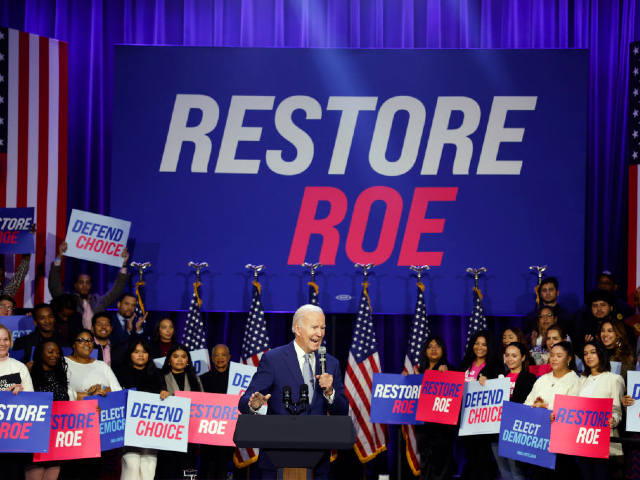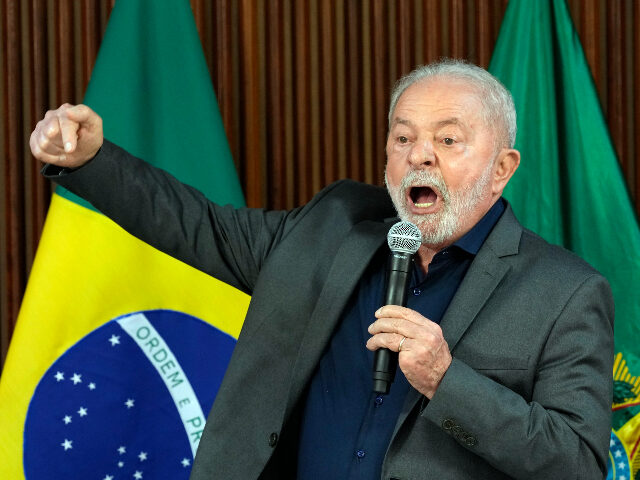Socialist convicted felon Luiz Inácio Lula da Silva, the current president of Brazil, removed that country this week from the list of signatories to the Geneva Consensus Declaration, a global document originally signed by 32 countries opposing abortion as a form of family planning and affirming the inherent “dignity and worth” of human life.
Brazil signed the American-led declaration in 2020 under conservative, pro-life President Jair Bolsonaro, who lost to Lula in a bitterly contested presidential race last year.
Lula, the Ministry of Health confirmed last week, also revoked an ordinance passed under Bolsonaro that required health workers to report abortions to law enforcement in case of rape and preserve “possible material evidence” that could be used to put a rapist behind bars. Pro-abortion activists and feminist groups objected to the ordinance on the grounds that the woman in question did not need to approve the transfer of information related to her rape and abortion to the police.
The measures against the pro-life movement by the nascent third Lula administration follow a tumultuous beginning to the hardline socialist’s new tenure. Lula, convicted of taking bribes while president and previously sentenced to nearly 25 years in prison after multiple appeals failed, appeared on the ballot as a presidential contender last year after the nation’s highest court, the Supreme Federal Tribunal (STF), overturned the convictions on procedural grounds. Lula opponents argue that a convicted felon should not legally be allowed on the ballot and a subsection of Bolsonaro supporters have protested insisting that the Brazilian constitution allows the armed forces to remove an illegitimate president. The protests led to a thousands-strong riot in Brasilia on January 8 that destroyed the STF building, resulted in major damage to the Brazilian Congress, and some substantial damage to the Planalto Palace, where the president’s offices are located.
Lula had declared himself to be “against abortion” as a candidate last year, but insisted that he believed all women should have access to the practice. Brazil is about 88 percent Christian – about 65 percent of the country identifies as Catholic, alongside significant Evangelical minorities – and only allows legal abortions in cases of rape, risks to a woman’s life, and fetal anencephaly, considered a condition not compatible with life outside of the womb.
The Bolsonaro-era requirement for health workers to report abortions in cases of rape to the police was passed in 2020 as a measure to help capture rapists. According to the Brazilian newspaper Estadao, the provision required health workers to keep “possible material evidence of the crime of rape to be handed over immediately to the police authority or to official experts, such as fragments of an embryo or fetus with a view to carrying out genetic confrontations that may lead to the identification of the respective perpetrator of the crime.”
Brazil currently suffers from one of the highest numbers of incidents of violence against women in the world. According to a study by the Brazilian Public Security Forum released in March, a woman was raped every ten minutes somewhere in Brazil throughout 2021. Among the most harrowing recent stories of rape in Brazil include the 2016 rape of a 16-year-old girl by 30 men, who posted photos and videos of their crime on social media; the rape of a woman firefighter by a security guard at the Rio de Janeiro Olympic Village; and the rape of an 11-year-old girl by a 13-year-old boy last year that resulted in the killing of a 29-week-old unborn child.
Lula followed the repeal of the law enforcement rape ordinance this week with Brazil’s quiet departure from the Geneva Consensus Declaration. According to the Brazilian newspaper O Globo, multiple government ministries under Lula – the Ministry of Health, the Foreign Ministry, the Women’s Ministry, the Human Rights Ministry, and the Citizens’ Ministry – made a joint announcement on the move on Wednesday. The ministries said the declaration “contains a limited understanding of sexual and reproductive rights and the concept of family.”
“The government reiterates its firm commitment to promoting effective and comprehensive guarantees of women’s health, in line with the provisions of national legislation and health policies in vigor on this issue, as well as full respect for different family configurations.”
O Globo noted that, like Lula, leftist American President Joe Biden left the Geneva Declaration as one of his first acts in office in 2021.

WASHINGTON, DC – OCTOBER 18: U.S. President Joe Biden speaks at a Democratic National Committee event at the Howard Theatre on October 18, 2022 in Washington, DC. With three weeks until election day, in his remarks Biden highlighted issues pertaining to women’s reproductive health and promised to codify access to abortion. (Photo by Anna Moneymaker/Getty Images)
The text of the Declaration – signed by a diverse set of nations including Egypt, Hungary, Indonesia, and Uganda – asserts that no right to abortion exists in international law and supports the rights of states to defend the unborn. Signatories of the declaration agreed, “in no case should abortion be promoted as a method of family planning,” “any measures
or changes related to abortion within the health system can only be determined at the national or local level
according to the national legislative process,” and that children “need special safeguards and care … before as well as after birth.”
“The family is the natural and fundamental group unit of society and is entitled to protection by society and the State,” another portion of the declaration read.
Lula’s departure from the Declaration prompted an outraged response from the National Conference of Bishops of Brazil (CNBB), who expressed opposition to “all and any initiative that signals the flexibilization of abortion [laws].” The CNBB noted that Lula had assumed “the defense of the unborn child” as a campaign promise and urged “wisdom and balance for the effective pursuit of peace.”
“It must be remembered that any attempt against life is also an aggression against the democratic rule of law and constitutes attacks on dignity and social well-being,” the bishops wrote.

COMMENTS
Please let us know if you're having issues with commenting.